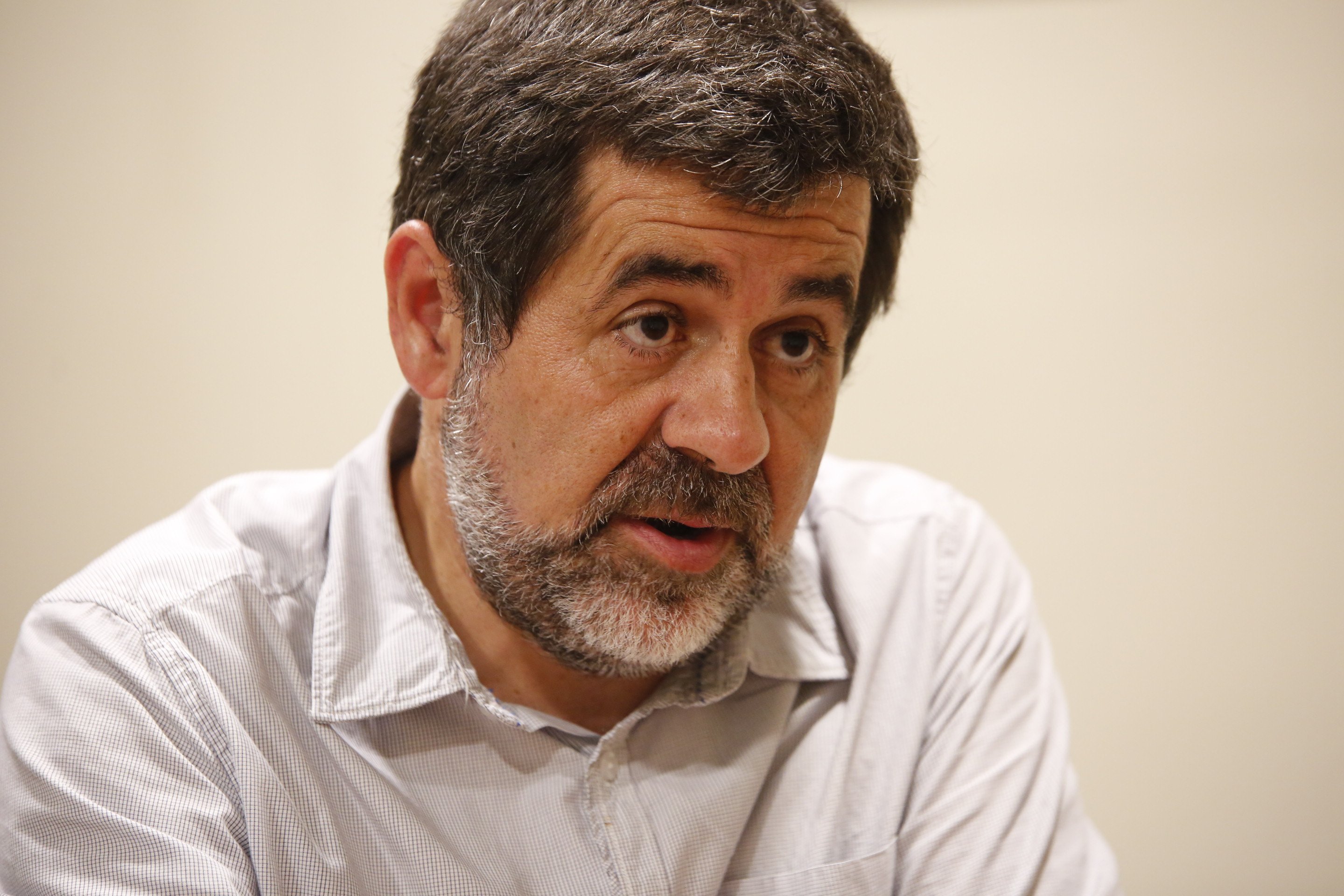Judge Pablo Llarena has today denied former Catalan National Assembly president Jordi Sànchez's application for release from pretrial detention as well as his application for special permission to be able to attend the Catalan Parliament debate on his investiture as president next Monday. He only allows the candidate to delegate his vote.
The judge bases his decision on the risk of recidivism and emphasises that the crimes under investigation were based on "clearly illegal" legislative and executive actions, "flagrantly disregarding constitutional, legal and institutional checks set out in our legal system, applying tactics which haven't been excluded and remain supported in the present".
Among his arguments, Llarena notes that Jordi Sànchez stood in last year's election whilst deprived of freedom and that "he didn't offer his voters the leadership he now calls for".
The judge hasn't even waited for the deadline he gave the parties involved to present arguments and has denied the two requests from Sanchez's defence: conditional release and permission to attend the investiture debate. Supreme Court sources explain that the judge isn't obliged to respect his own deadlines. Only the public prosecution had presented its report, an hour earlier, opposing both requests.
The deadline Llarena had set was for Monday, the same day the investiture debate is to be held. In today's ruling, he admits that if he had waited for then, there would have been a "delay in the resolution which could make ineffective the right this preservation seeks".
An investiture with no president
About Sànchez's petition to at least be allowed to attend the debate on his candidacy for investiture as president on 12th March, the judge turns it down after weighing up the relevant legal rights. He says that whilst article 23.1 of the Constitution recognises the right to take part in public matters directly or through freely-elected representatives, these rights can be limited based on legitimate constitutional aims which are reasonably comparable in severity.
He concludes that "although any citizen has the right to aim for a democratic and representative investiture, the right doesn't end the legal obligation to safeguard that the exercise of [such] rights by those to whom serious criminal behaviour is attributed should not put at risk more important rights in greater need of protection".
Sànchez to remain in prison
In the 26-page decision, the judge first discusses the evidence against Jordi Sànchez collected during the investigation. He says that, although the suspects never looked for a violent challenge to the Spanish state, from the 20th September, the day of the protests against the Civil Guard searches of the Catalan Economy ministry, onwards, "they had to imagine that their mobilisations introduced the probability of this outcome. And if, accepting this outlook, they persisted in their intention to exploit this collective behaviour, their responsibility would encompass the intentional use of violence in the attainment of their secessionist aims which are being analysed in this process".
The Supreme Court judge says that it is "intolerable, socially and legally, that they might achieve secession through means that, without constitutional and legal support, inexorable break with the social, family and personal harmony of each and every member of the community".
After discussing the gravity of the conduct, the judge turns to looking at the future, arguing that the risk remains that Sànchez still wants to achieve independence for Catalonia using a strategy contrary to criminal law. "The investigation shows that the participants in the crime conspired to persevere in their strategy", he writes, citing Sànchez having stood for election with JxCat, a candidacy which "has expressly and permanently opposed broaching any political management other than implementing the republic they declared".
"Given that the events whose repetition is feared affect constitutional values which have a direct effect on the subjective rights of the whole population, their protection against the possibility of conflict with other rights prevails with respect to the freedom of the suspect and his right to passive suffrage."
The judge also argues that, as Sànchez was already in pretrial detention before the election campaigns started, he "didn't offer his voters the leadership he now calls for". He says that JxCat has other members, "all with the same number of votes from the electorate" due to the election system, a variant of party-list proportional representation and that the candidate can take part in parliamentary decisions by delegating his vote.
Terrorism and democracy, different cases
One of the arguments used by the defence was precedent from the 1980s, when a court allowed Juan Carlos Yoldi, accused of terrorism as a member of ETA, to attend the Basque Parliament as a candidate for investiture as lehendakari (president). Llarena argues that the crimes in the two cases were different in that in Yoldi's case, there was no increased risk of criminal recidivism if the permission to attend the debate led to a parliamentary majority in support of his candidacy. In that case, it only affected the potential flight risk, to which end security measures were implemented.

